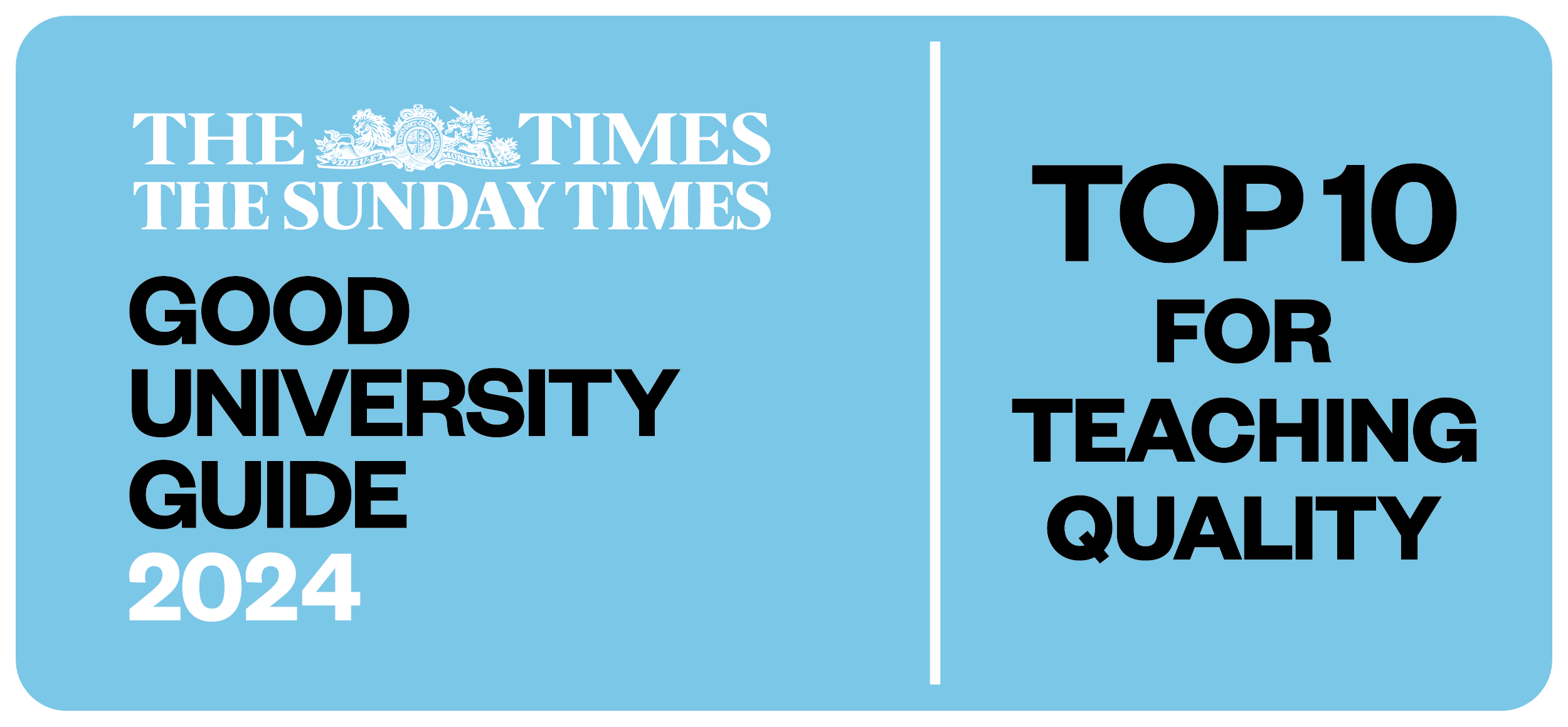Explore our offering
These exciting range of subject workshops have been designed to allow individuals to discover career destinations, understand their strengths and identify areas they’re passionate about. The activities can be incorporated into taster days or other bespoke visits.
Agriculture
The importance of soil health to farming and the environment cannot be underestimated. Healthy soil is crucial for traditional farming, climate neutrality, reversing biodiversity loss, supporting wildlife, and providing healthy food, clean air, water, and productive farming. The workshop will focus on the University farm, where you’ll identify different soil types and learn to manage them for agriculture and biodiversity. You’ll analyse the impact of modern farming practices on soil structure and organic matter, and discuss methods to mitigate negative effects.
Equipment required: Wellington/walking boots and a waterproof raincoat.
Duration: 60 to 90 minutes
Year groups: 12 and 13
College years: 1 and 2
Method of delivery: Face-to-face on campus.
Gatsby benchmark: 4, 5, 6, 7.
Agricultural businesses face challenges like increasing production to feed a growing population while maintaining a healthy environment, rising input prices and supply chain inefficiencies. Additionally, the changing macro-economic situation and global market volatility make strategic planning difficult for farmers. In this workshop, learners will explore economic theories affecting farm decision-making. Using past financial and physical data from the university farm, they will gain real-world insights into managing an agri-business. Learners will analyse strategies to minimize market volatility impacts through risk mitigation.
Equipment required: Wellington/walking boots and a waterproof raincoat.
Duration: 60 to 90 minutes
Year groups: 12 and 13
College years: 1 and 2
Method of delivery: Face-to-face on campus.
Gatsby benchmark: 2, 4, 5, 6, 7.
Agriculture
Healthy soil, agriculture and the planet
The importance of soil health to farming and the environment cannot be underestimated. Healthy soil is crucial for traditional farming, climate neutrality, reversing biodiversity loss, supporting wildlife, and providing healthy food, clean air, water, and productive farming. The workshop will focus on the University farm, where you’ll identify different soil types and learn to manage them for agriculture and biodiversity. You’ll analyse the impact of modern farming practices on soil structure and organic matter, and discuss methods to mitigate negative effects.
Equipment required: Wellington/walking boots and a waterproof raincoat.
Duration: 60 to 90 minutes
Year groups: 12 and 13
College years: 1 and 2
Method of delivery: Face-to-face on campus.
Gatsby benchmark: 4, 5, 6, 7.
Sustainable agri-business
Agricultural businesses face challenges like increasing production to feed a growing population while maintaining a healthy environment, rising input prices and supply chain inefficiencies. Additionally, the changing macro-economic situation and global market volatility make strategic planning difficult for farmers. In this workshop, learners will explore economic theories affecting farm decision-making. Using past financial and physical data from the university farm, they will gain real-world insights into managing an agri-business. Learners will analyse strategies to minimize market volatility impacts through risk mitigation.
Equipment required: Wellington/walking boots and a waterproof raincoat.
Duration: 60 to 90 minutes
Year groups: 12 and 13
College years: 1 and 2
Method of delivery: Face-to-face on campus.
Gatsby benchmark: 2, 4, 5, 6, 7.
Animal
The importance of soil health to farming and the environment cannot be underestimated. Healthy soil is crucial for traditional farming, climate neutrality, reversing biodiversity loss, supporting wildlife, and providing healthy food, clean air, water, and productive farming. The workshop will focus on the University farm, where you’ll identify different soil types and learn to manage them for agriculture and biodiversity. You’ll analyse the impact of modern farming practices on soil structure and organic matter, and discuss methods to mitigate negative effects.
Equipment required: Sensible shoes such as trainers/ boots for walking outdoors.
Duration: 45 to 60 minutes
Year groups: 12 and 13
College years: 1 and 2
Method of delivery: Face-to-face on campus.
Gatsby benchmark: 4, 7.
This workshop will introduce drones to the students and how they can be used in the study of animals. In this session we will discuss the legalities of drone photography and using a drone to remotely follow animals, survey remote areas, and calculate populations numbers and densities through aerial photography.
Equipment required: Sensible shoes such as trainers/ boots for walking outdoors.
Duration: 45 to 60 minutes
Year groups: 12 and 13
College years: 1 and 2
Method of delivery: Face-to-face on campus.
Gatsby benchmark: 4, 7.
Animal
Camera trap use for conservation
The importance of soil health to farming and the environment cannot be underestimated. Healthy soil is crucial for traditional farming, climate neutrality, reversing biodiversity loss, supporting wildlife, and providing healthy food, clean air, water, and productive farming. The workshop will focus on the University farm, where you’ll identify different soil types and learn to manage them for agriculture and biodiversity. You’ll analyse the impact of modern farming practices on soil structure and organic matter, and discuss methods to mitigate negative effects.
Equipment required: Sensible shoes such as trainers/ boots for walking outdoors.
Duration: 45 to 60 minutes
Year groups: 12 and 13
College years: 1 and 2
Method of delivery: Face-to-face on campus.
Gatsby benchmark: 4, 7.
Drone use in population sampling
This workshop will introduce drones to the students and how they can be used in the study of animals. In this session we will discuss the legalities of drone photography and using a drone to remotely follow animals, survey remote areas, and calculate populations numbers and densities through aerial photography.
Equipment required: Sensible shoes such as trainers/ boots for walking outdoors.
Duration: 45 to 60 minutes
Year groups: 12 and 13
College years: 1 and 2
Method of delivery: Face-to-face on campus.
Gatsby benchmark: 4, 7.
Equine
The equine heart works incredibly hard and is extremely efficient and powerful. A horse’s heart rate can increase from 30bpm at resting, to 240bpm at gallop while reaching speeds of 30mph. This interactive workshop looks at uses of heart rate monitoring in the equine athlete, and the practical application of using technology to monitor heart rate in the exercising horse.
Equipment required: Protective footwear such as strong boots or trainers. Legs must be covered (no skirts/ shorts).
Duration: 45 to 60 minutes
Year groups: 12 and 13
College years: 1 and 2
Method of delivery: Face-to-face on campus.
Gatsby benchmark: 4, 7.
The function of the immune system and how it defends the equine body relies on blood components such as white blood cells to attack foreign bodies and maintain equine health. To do this there must be the right structure, function and sufficient amounts of these white blood cells in order to defend the body. We will examine blood smears to assess the presence of these important cell types and consider their structure and function in prevalent equine disease issues.
Equipment required: No open-toe shoes. Legs must be covered (no skirts/ shorts). Hair is to be tied back.
Duration: 45 to 60 minutes
Year groups: 12 and 13
College years: 1 and 2
Method of delivery: Face-to-face on campus.
Gatsby benchmark: 4, 7.
Equine
The equine athlete: heart rate monitoring
The equine heart works incredibly hard and is extremely efficient and powerful. A horse’s heart rate can increase from 30bpm at resting, to 240bpm at gallop while reaching speeds of 30mph. This interactive workshop looks at uses of heart rate monitoring in the equine athlete, and the practical application of using technology to monitor heart rate in the exercising horse.
Equipment required: Protective footwear such as strong boots or trainers. Legs must be covered (no skirts/ shorts).
Duration: 45 to 60 minutes
Year groups: 12 and 13
College years: 1 and 2
Method of delivery: Face-to-face on campus.
Gatsby benchmark: 4, 7.
Equine health and disease – haematology analysis
The function of the immune system and how it defends the equine body relies on blood components such as white blood cells to attack foreign bodies and maintain equine health. To do this there must be the right structure, function and sufficient amounts of these white blood cells in order to defend the body. We will examine blood smears to assess the presence of these important cell types and consider their structure and function in prevalent equine disease issues.
Equipment required: No open-toe shoes. Legs must be covered (no skirts/ shorts). Hair is to be tied back.
Duration: 45 to 60 minutes
Year groups: 12 and 13
College years: 1 and 2
Method of delivery: Face-to-face on campus.
Gatsby benchmark: 4, 7.
Sport
What does a sport and exercise nutritionist do? In this session we will discuss a variety of nutritional approaches utilised to enhance health and performance, delivered by our applied sports nutritionists. This is a great introductory workshop which combines the principles of physiology and nutrition.
Duration: 30 to 45 minutes
Year groups: 12 and 13
College years: 1 and 2
Method of delivery: Face-to-face on/ off campus or virtual.
Gatsby benchmark: 4, 7.
The session will be an interactive class theory session, around the principles of marketing. Topics covered will be the 4Ps (Product, Price, Place, Promotion), branding and market orientation. The session will use elements of the marketing module delivered to business degree students, with more of a broad application for universal appeal.
Duration: 30 to 45 minutes
Year groups: 12 and 13
College years: 1 and 2
Method of delivery: Face-to-face on/ off campus or virtual.
Gatsby benchmark: 4, 7.
Sport
Fundamentals of sport and exercise nutrition
What does a sport and exercise nutritionist do? In this session we will discuss a variety of nutritional approaches utilised to enhance health and performance, delivered by our applied sports nutritionists. This is a great introductory workshop which combines the principles of physiology and nutrition.
Duration: 30 to 45 minutes
Year groups: 12 and 13
College years: 1 and 2
Method of delivery: Face-to-face on/ off campus or virtual.
Gatsby benchmark: 4, 7.
Introduction to marketing in the sport industry
The session will be an interactive class theory session, around the principles of marketing. Topics covered will be the 4Ps (Product, Price, Place, Promotion), branding and market orientation. The session will use elements of the marketing module delivered to business degree students, with more of a broad application for universal appeal.
Duration: 30 to 45 minutes
Year groups: 12 and 13
College years: 1 and 2
Method of delivery: Face-to-face on/ off campus or virtual.
Gatsby benchmark: 4, 7.
If you have any other questions, please don't hesitate to get in touch with us.






